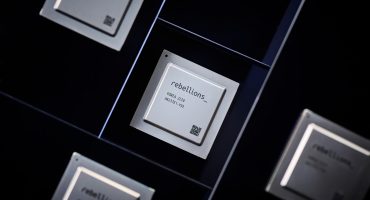
- AI Wereables
- Consumer Tech
Amazon Acquires Bee to Boost AI Wearable Assistant Tech
6 minute read

AI wearable technology startup Bee enhances Amazon’s digital assistant capabilities with passive conversation monitoring and personalized insights
Key Takeaways
- Amazon acquires Bee AI wearable startup for undisclosed amount, bringing technology that records and transcribes conversations to create personalized AI assistant experiences
- $50 wearable device processes conversations passively to summarize daily activities and integrate with email, calendar, and contacts, marking shift from voice-command to context-aware AI
- All Bee employees receive Amazon offers as company seeks to integrate talent from startup that raised $7 million in 2024 from Exor, Greycroft, and other VCs
Introduction
Amazon strengthens its position in the competitive wearable technology market through the acquisition of Bee AI, a San Francisco-based startup that developed a $50 wearable AI assistant. The deal brings Amazon technology that passively listens to conversations and transforms them into actionable insights, representing a significant evolution from traditional voice-command assistants.
Bee CEO and co-founder Maria de Lourdes Zollo announced the acquisition on LinkedIn, stating the deal will “help us bring truly personal, agentic AI to even more customers.” The acquisition addresses Amazon’s need to compete more effectively with Apple and Google in the rapidly expanding wearable market, projected to reach over $150 billion globally by 2028.
Key Developments
Founded in 2020, Bee AI developed a wrist-worn device and Apple Watch app that records and transcribes conversations throughout the day. The platform summarizes daily activities, suggests to-dos, and recalls previously discussed details by integrating with users’ email, calendar, and contacts systems.
The startup raised $7 million in 2024 from notable venture capital firms including Exor, Greycroft, New Wave VC, and Banana Capital. Amazon has not disclosed financial terms but confirms that all Bee employees received offers to join the company, indicating focus on acquiring both technology and talent.
According to Bloomberg, the acquisition aims to integrate Bee AI’s wearable innovations with Amazon’s existing product ecosystem. The deal has not yet closed but represents Amazon’s continued push into health and wellness technology sectors.
Market Impact
The acquisition intensifies competition in the wearable technology space where Apple and Google maintain dominant positions. Amazon’s entry with Bee’s conversational AI technology creates a new category of proactive, context-aware digital assistants that operate differently from existing voice-command systems.
Industry analysts view the move as Amazon’s response to mixed results from previous wearable ventures. The company continues selling Echo Frames smart glasses but discontinued its Halo health tracker in 2023, making Bee’s AI-focused approach particularly strategic for the retail giant.
The wearable market shows strong growth momentum, with AI integration driving expansion across health monitoring and personal productivity segments. Amazon’s timing positions the company to capitalize on increasing consumer demand for intelligent, personalized technology experiences.
Strategic Insights
Bee’s technology represents a fundamental shift from reactive voice assistants like Alexa to proactive AI agents that understand context without explicit commands. This approach aligns with Amazon’s broader ambient computing strategy and could enhance integration across Echo and other connected devices.
The acquisition brings Amazon experienced talent, including co-founders Maria de Lourdes Zollo and CTO Ethan Sutin, who previously worked at Twitter and other technology companies. This expertise strengthens Amazon’s AI development capabilities as the company prepares to launch its Alexa+ generative AI assistant.
Amazon’s strategic focus on on-device AI processing addresses growing privacy concerns while maintaining personalization capabilities. This approach differentiates the company from competitors who rely more heavily on cloud-based processing for AI functions.
Expert Opinions and Data
Amazon spokesperson emphasizes alignment with company values, stating, “We are excited to welcome Bee AI to the Amazon family. Their innovative technology aligns perfectly with our vision of creating products that help customers lead healthier lives.”
Privacy considerations remain central to the integration strategy. Amazon tells GeekWire, “We design our products to protect our customers’ privacy and security and to make it easy for them to be in control of their experience — and this approach would of course apply to Bee.”
Bee addresses privacy concerns by not storing audio recordings and utilizing what the company describes as “highest security standards.” The device includes a mute button and tests on-device AI models to reduce cloud processing dependencies, responding to previous Amazon privacy controversies involving Alexa recordings.
Industry observers express mixed reactions to always-listening technology, particularly given Amazon’s past challenges with employee review of Alexa conversations. However, Bee’s emphasis on local processing and audio deletion may help address these concerns.
Conclusion
Amazon’s acquisition of Bee AI marks a strategic pivot toward proactive, conversational AI that operates continuously rather than responding to specific commands. The deal positions Amazon to compete more effectively in the growing wearable market while addressing privacy concerns through on-device processing.
The integration of Bee’s technology and talent strengthens Amazon’s AI capabilities as the company prepares to launch enhanced versions of its digital assistant products. Success depends on Amazon’s ability to balance personalization benefits with privacy protection in an increasingly competitive wearable technology landscape.






